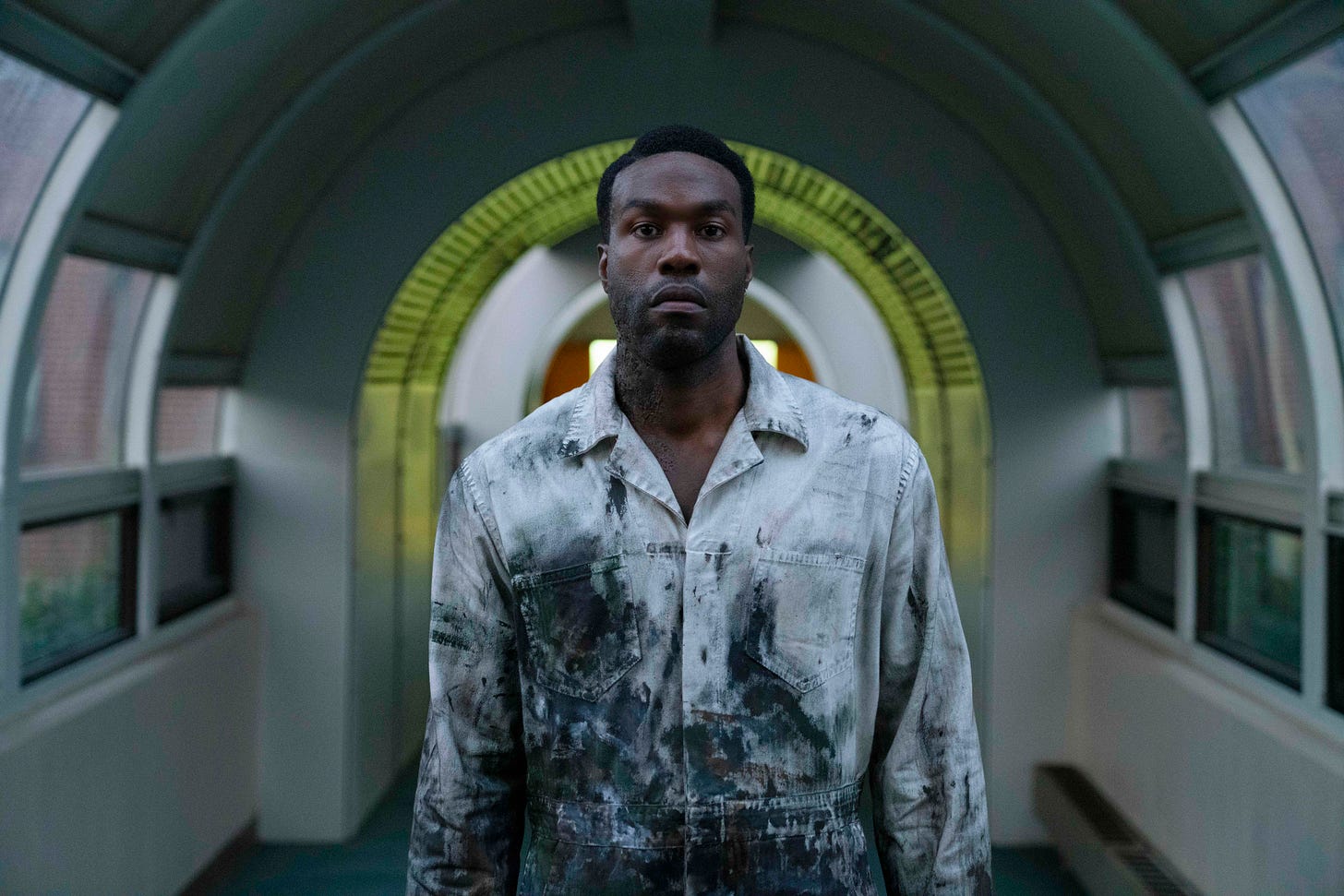Image Credit: Universal Pictures
Welcome to the latest edition of Weekend Watch, in which I recommend (or occasionally warn against) movies or TV shows I’ve been checking out. This week, Nia DaCosta re-imagines and old horror in a new way, and Mark Waters fashions a flipped spin on an old rom-com. Follow James on Twitter: @jamwhite
There has been a recent trend for films that serve both as sequels and reboots, especially David Gordon Green’s stab at Halloween, which has spawned its own trilogy. Nia DaCosta’s re-examination of Candyman is a different beast because it opens up the themes of the 1992 horror with truly fresh eyes and finds something different to say beyond the historical aspect. Problem is, it dives into that concept while forgetting to create many compelling characters.
The story here kicks off in 1977, when a boy witnesses an act of supreme police cruelty at the Cabrini Green projects in Chicago, location for the original film. Cut to 2019 and the area has been gentrified with few landmarks and memories of what was once there. Some things, though, stay alive in shared narrative and when struggling artist Anthony McCoy (Yahya Abdul-Mateen II) learns of the Candyman legend, he’s consumed with its connections to racial abuse, corruption, power, segregation, and, most importantly to him, what it might do for his career. Dragging gallery curator and girlfriend Brianna Cartwright (Teyonah Parish) along for his descent into obsession and horror, he digs deeper, channelling it into his work and unwittingly unleashing the killer spirit once more upon the city. Candyman, you see, is an urban legend sprung from the slaughter of a Black artist in the 19th century whose only crime was falling for the daughter of a wealthy white patron. He ended up hunted, tortured, maimed, and covered in honey, the better for bees to finish the job of ending his life. Now, reborn as a hook-handed killer, the legend has spread across the centuries.
In investigating the core elements of the original film (and wisely ignoring its far lesser sequels) Candyman finds some fruitful ground to cover. DaCosta, along with writer/producers Jordan Peele and Win Rosenfeld explore gentrification as assault, vengeance, and historical horror with gusto, though their efforts end up conveying more dread and tone than actual scares.
Abdul-Mateen II is a captivating lead, utterly convincing as someone who would lose themselves to this mystery. Yet only he and Parish (and to a lesser extent Colman Domingo) have real characters, while everyone else is largely employed to convey information or be a victim. Which, I suppose is par for the course in horror movies, but Peele has done much more for the genre in past work such as Get Out. And after laying some intelligent groundwork for what follows, the film suddenly appears to sprint to the finish line in a hurried, unsatisfying manner.
To DaCosta’s credit, Candyman is strikingly stylish, from its flowing, haunting opening sequence to the way she shoots certain kills from a distance. Her (and her team’s) camera is constantly inventive, and I’m excited to see what she brings to The Marvels – with hopes that her style won’t be flattened out for the MCU standard look. As for the horror project, it’s certainly much more than your average slasher, even if its ambition exceeds its grasp.
Candyman is in UK and US cinemas now.
Image Credit: Netflix
Do we define ourselves by how we look, how others see us, or who we are inside? That’s some of the philosophical debate powering He’s All That, which applies such concepts to… Oh, who am I kidding? This is a gender-swapped remake of 1999’s She’s All That, in which Rachael Leigh Cook’s ugly duckling complicated, lonely nerd Laney Boggs is revealed to be a beautiful swan mostly when she takes off her glasses. It’s the sort of Superman reveal that had people shouting at the screen, “how did no one in the movie realise?” The answer, of course, is because plot reasons. Now, though, because everything old is new again, we have a gender-swapped take on the movie.
Cook is back, though this time she’s relegated to playing the mother of perky make-up influencer Padgett Sawyer (Addison Rae, who has forged her own career on social media, via something the young people tell me is called “Tik Tok”). Padgett is one of the popular girls in her rich high school even though she’s fooling everyone into thinking she’s wealthier than she is. After discovering that her boyfriend Jordan (Peyton Meyer) is cheating on her, and having the infidelity exposed on a live video feed, Padgett is horrified. Still, when she’s challenged by a friend to repeat the trick of turning a former loser like Jordan into a cool kid, she takes the bet. Her target? Straggly-haired, cynical photographer Cameron Kweller. Can she make him Prom King? She’ll certainly try. Cameron is played by Tanner Buchannan from Cobra Kai, so you know he’ll scrub up okay. And yes, there is a karate joke.
He’s All That is a mostly harmless stab at re-invention that follows a very similar track to the original with a few tweaks and updates (it’s written by the 1999 film’s scribe R. Lee Fleming Jr, with Mean Girls director Mark Waters this time calling the shots). Neither Rae nor Buchannan are Oscar-calibre actors, but they have some charisma and enough chemistry to stop it from feeling like torture. And the supporting cast is a likable bunch, including Annie Jacob as Nisha, Cameron’s best pal. Plus, there are some easter eggs for those who like the original film besides Cook. Did He’s All That truly need to exist? Probably not, but it’s not without its charms.
He’s All That is on Netflix now.




